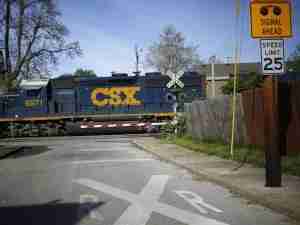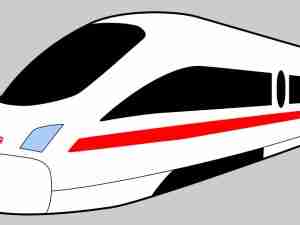Three of the biggest freight railroads -- Kansas City Southern, Norfolk Southern Corp and CSX Corp. -- reported strong growth in auto shipments but weakness in their key coal-hauling businesses, as they gave mid-quarter updates to a transportation conference.
Kansas City Southern's shipments of coal, farm products and chemicals were weaker than it expected a month ago, but the company kept its full-year profit forecast unchanged, saying shipments should pick up once the railroad moves past temporary factors.
"We had a much more positive outlook 30 days ago," Chief Financial Officer Michael Upchurch told the Bank of AmericaMerrill Lynch global transportation conference in Boston.
Second-quarter energy line-haul revenue, including coal, is now expected to be down by single-digit percentages, down from earlier expectations of double-digit grow th, the company said. Its shares were flat at midday.
Second-quarter line-haul revenue, which excludes fuel surcharges and other items, is a lso e xpected to be down in the agriculture and mineral category as well as in chemicals and petroleum. Kansas City Southern expects all categories to show positive sales gains for the year and the company reaffirmed its full-year forecast.
Norfolk Southern, whose shares fell 0.6 percent, said car shipments were up 14 percent from the end of the first quarter through May 12 and have also driven up shipments of steel.
"We anticipate it remaining that way through the rest of the year," Chief Executive Wick Moorman told the conference.
Shipments of coal have fallen so far this quarter, down about 12 percent in Norfolk Southern' s case, which Moorman blamed on the unseasonably warm weather.
Coal vs. Natural Gas
Prices for steam or thermal coal used to fire power plants have slumped almost 20 percent since the start of the year on weak demand from utilities. The relatively mild U.S. winter reduced demand for electricity and some plants are switching from coal as natural gas prices hit historic lows.
This has led to unusually high inventories of coal at some utilities, prompting them to ask coal producers to defer deliveries. Several coal companies have announced production cuts and are idling mines.
Earlier this month, Alpha Natural Resources lowered its 2012 production target and Chief Executive Officer Kevin Crutchfield said power plant inventories had risen to over 200 million tons, near record levels. In addition, coal-fired generation has fallen below 40 percent of U.S. electricity generation.
CSX, concentrated in the east and Midwestern United States, said its second quarter will be the most difficult of the year, with coal volumes down 17 percent so far this quarter as lower natural gas prices increasingly compete with coal.
"The big driver is lower natural gas," said Fredrik Eliasson, CSX executive vice president and chief financial officer. He added declines in CSX's coal business will moderate.
"We do know that utility coal will have a long term place in our energy supply. We think we're going to stabilize that decline as we move through the year (but) we're not counting on a big uptick at this point."
CSX said its long-term target of a 65 percent operating ratio by 2015 will be harder to reach but remains the company's No. 1 priority.
CSX is on track to grow earnings this year, Eliasson said. A healthy auto sector drives chemical and metal shipments and offsets weak agricultural markets and flat construction markets.
Boost From 'Near-Sourcing'
The strong U.S. auto market is causing carmakers to add production capacity in Mexico, where most cars are made for export. Ka nsas City Southern said Friday it expects strong long-term growth from "near-sourcing," the movement of manufacturing plants to Mexico from Asia.
More customers prefer a shorter supply chain and lower transport costs, and see a diminishing advantage to manufacturing in China. Wage diff






